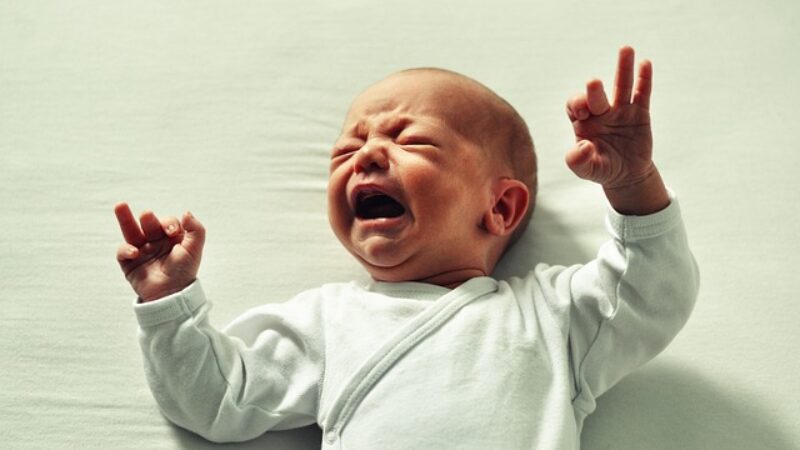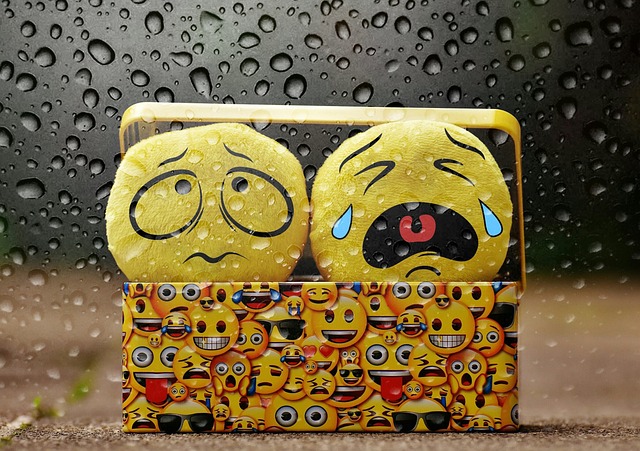Crying in Sleep: Causes & Should You Worried?

There are many reasons why you might cry in sleep. Related to any of the aforementioned things (all listed below), from deeply felt dreams to underlying grief. The bottom line is that if you rarely wake up crying, you shouldn’t be concerned. It might be worthwhile to consult a doctor if it occurs frequently.
I delved into the research and wrote this article to try and help after going through this myself. In it, we’ll cover:
What Causes People to Cry in Their Sleep?
The main goal for the majority of new parents is likely to be getting their child to sleep through the night. Because they are unaccustomed to changing from one stage of sleep to the next, babies cry while they are asleep. Nevertheless, as infants mature and grow, they wake up less frequently, allowing their parents to get more rest.
Adults who have recently experienced a traumatic event, are emotionally drained, or have mental health issues may cry at night and when they wake up.
Crying during the sleep cycle can be brought on by physical changes, dementia symptoms, aging’s mental and emotional effects, and the stress of life transitions in older people.
The following are some potential causes of crying while you sleep.
Night Terrors
Night terrors are a parasomnia that you can’t remember when you become awake. These happen more frequently to kids than to adults.
Between the ages of 3 and 7, night terrors most frequently happen. 30% of both male and female children are thought to experience night terrors. A night terror can last for a short while or for several minutes.
These can involve moving violently around in bed, screaming, and/or sleep-walking and can cause crying in sleep and upon waking. Night terrors become significantly less frequent around the age of 10.
Nightmares
What could possibly be worse than a nightmare? A nightmare. You probably recall having more nightmares as a child than as an adult. But at my age, anyone can go through them. When you wake up from a nightmare, you might feel scared, upset, shaken, and uneasy.
You might even wake up crying from a nightmare occasionally. You can’t completely stop frightful dreams from disturbing your sleep.
Although scientists aren’t fully sure why people have nightmares, they believe they are related to how we process difficult emotions and stress, manage adverse situations and deal with anxious feelings about upcoming events.
Suppressed Emotion Or Grief
Anyone who experiences a tragic loss or traumatic event will grieve in their own unique way. Some people have the capacity to communicate their feelings clearly, seek assistance without encountering many obstacles, and advance quickly.
Others may choose to keep their emotions hidden or suppressed and isolate themselves. There are some people who act as if everything is fine. During the day, they remain busy and active, but at night, troubling emotions surface in the form of sleep disturbances.
There is no right way to mourn the loss of a loved one and sleep crying may be your body’s natural way of handling that experience. Reaching out to a therapist or mental health professional can help you process those difficult emotions, determine ways to cope, and learn to heal.
Anxiety and Stress
Life can be full of stressors, including problems at work, in marriage, with families, with money, and with one’s health. Your body needs time to process the complicated situations that life has been throwing at you.
Sleep promotes the brain’s capacity to create emotional memories, foster empathy, and control emotional reactivity.
As your brain attempts to deal with the overwhelmingly stressful circumstances in your life, the stress and anxiety you are experiencing may manifest as sleep crying.
Parasomnia
Parasomnia is a category of sleep disorders that includes sleepwalking and sleeptalking. A person who has parasomnia will physically recreate their dream in the present, which may include crying. You are more likely to develop this sleep disorder if someone in your family does.
Stress, anxiety, and significant sleep pattern changes all worsen insomnia. As they are not aware of their surroundings, it may jeopardize their safety. By ingesting poisonous substances, falling off ledges or down stairs, bumping into things, or falling, they could unintentionally hurt themselves.
If you frequently experience parasomnia, it’s important to get advice from a medical expert about your treatment options and possible prevention measures.
Depression
A typical mood disorder called depression is characterized by persistent feelings of melancholy, hopelessness, and loss of interest in once-pleasurable pursuits.
Depression and sleep problems clearly have a connection. Insomnia is a problem for 75% of depressed people, both getting to sleep and staying asleep.
Cry episodes for no apparent reason are one of the signs of depression.
Morning Depression
Morning depression is also known as diurnal mood variation. When I wake up in the morning, I experience this particular type of depression. Some signs include sleeping more than usual, feeling annoyed or irritable when you wake up, having little energy to begin your morning routine, and having a negative outlook on the day.
The causes of morning depression aren’t clear; however, researchers suggest it is related to issues with your circadian rhythm. Your body’s circadian rhythm is a sleep-wake cycle that carries out vital tasks throughout the day to aid in sleeping at night and waking up in the morning.
Dementia
Sleep problems are related to dementia. It may be because of the dysregulation of their sleep-wake cycles brought on by brainstem and hypothalamic degeneration, according to researchers. Those with dementia have reported having trouble falling asleep, napping more during the day, getting more irritable in the evening and waking up frequently through the night.
Sleep Stage Changes
If you’re reading this because you’re worried about your child waking up while crying, this can be caused by sleep stage changes in babies. They switch from a deeper to a lighter sleep during this time, but they are confused by it because they haven’t quite grasped it. For instance, if they fall asleep with you by their side and a warm bottle, but then wake up later in the night alone.
Recent Change in Medication
Medications should be changed, especially those that have the potential to impact our hormones or mood (e.g. anti-depressants) – can bring out surprising emotional events like unexpected crying.
Apparently unrelated to one another and without reason, this can occur. If the problem persists for a long time, a doctor should be consulted even though it might be transient and go away with time.

How Can I Cry If I’m Asleep?
When you’re asleep, your brain doesn’t shut down. In fact, it’s extremely busy while you sleep, and so is the body.
We transition from being awake to being in a deep sleep between stages 1 and 4. Slow waves replace the waking state waves in our brain waves.
During REM sleep (stage 4 or 5, depending on who you speak to), our brain waves wake up again. But our bodies remain asleep.
Certain areas of the brain activate and become active.
While we sleep, the hippocampus is at work solidifying memory. But two other, more unusual areas become active: the amygdala and the cingulate gyrus.
The amygdala is the section of the brain that links the senses with our emotions. The cingulate gyrus controls muscle movement in response to external stimuli.
Even though we’re fast asleep, our emotions, senses, and certain muscle movements are still active.
Depending on the circumstances, this combination can lead to acting out real-world actions. You can talk, walk, laugh, or even cry in your sleep.
Who Does It Happen To?
Crying in your sleep can happen to anyone.
In children, it’s likely to be as a result of nightmares or night terrors.
Adults can experience it after a traumatic event. In the elderly, depression can lead to bouts of sleep crying.
Thus, anyone—from young children to elderly individuals—can experience it.
Is Sleep Crying the Same as Real Crying?
Whether it’s the same as real crying is one of the main queries we have when we awaken crying.
We typically only cry when we are extremely sad or in pain throughout our lives. So it can be concerning if we unintentionally find ourselves doing it at night.
It depends, is the succinct response. If it’s dream-related, it can be categorized as just acting out a dream, especially if it happens infrequently. Consider how it would be similar to experiencing all three emotions simultaneously in dreams.
Contrarily, crying out of genuine emotion, such as grief, stress, or depression, is the same as actual crying. Even though it’s still not the same as a trauma’s immediate aftermath, sadness or hopelessness may still be the cause.
Once more, if this is unusual, you may only need some time to pass. However, if the problem persists for a month or longer, it would be wise to seek assistance.
What Does It Mean When You Cry in Your Sleep?
Older adults who have had severe night terrors may wake up in tears. Babies may cry as they move from one stage of sleep to the next. However, this frequently causes more anxiety for the person watching the baby or the adult than it does for the person themselves.
Is It Normal to Cry in Your Sleep?
Although crying while you sleep is common, you shouldn’t ignore it. After going through a traumatic event, adults may experience this. and they may want to seek counseling to aid in the healing process. To determine whether medical intervention is required, caregivers should keep an eye on elderly patients.
Make a note if the crying is accompanied by other types of pain or discomfort, and have a professional check for urinary infections, ear infections, bed sores, and other stressful conditions. A regular check-in is still required even when the cause of the crying is not always found.
When Should I Worry?
In some cases, crying in your sleep may be cause for concern. If you can rule out all of the reasons above, there may be an underlying reason.
You should definitely see a doctor if:
It Happens Frequently
Everybody has experienced sleeping crying. It’s perfectly normal if it occasionally occurs to you. But if you’re waking up in tears often, there may be something else behind it.
Often is a relative term, though. For many of us, sleeping crying has never happened. So it’s hard to tell what counts as “often”.
If it happens twice within a month, it may be a good idea to get a checkup just to be safe.
You’ve Recently Had a Traumatic Experience
Unusual manifestations of emotional and mental trauma are possible. Crying while you’re asleep is one of them.
Did your sleep crying only begin after you experienced a trauma? It might be psychological, emotional, or even physical.
This may be a sign that you need to deal with underlying emotions about the trauma you experienced.
In this situation, a psychologist may be a better choice than a physician. But it might also be a good idea to get checked out by a doctor.
You’ve Recently Suffered a Head Injury
A head injury can alter the way the brain works. A knock to the head can change your brain waves, even if just for a short time.
Strange occurrences like crying while you sleep could result from this. Consult a medical professional if this occurs after a head injury. even though the bump was slight.
You Have Other Symptoms
If sleep crying comes with other unusual symptoms, a medical checkup is necessary.
Some symptoms you may experience include:
- Insomnia
- Night terrors
- Sleep apnea
- Extreme fatigue
- Unusual irritability
- Aches and pains
Anything else that’s not normal for you should raise a red flag.
You’ve Recently Changed Meds
The side effects of medication can be very bizarre! One of them might be sobbing while you’re asleep. If you’ve recently started or changed to a new medication, your sleep crying could be a result.
You should talk to your doctor if this seems to be the cause.
It Disrupts Your Sleep
If your sleep crying is:
- Waking you up often
- Preventing you from sleeping
- Causing you extreme worry
- Making you afraid to sleep
Then perhaps it’s time to enlist assistance. A doctor’s appointment is a good start. You can put your mind at ease by learning if there are any underlying issues.
However, your doctor can also provide tips on how to sleep better. Improving your sleep could actually stop the sleep crying.
Benefits of Crying
This has definitely been a depressing article!
So to end on a nice note, I wanted to include some real benefits of crying.
- Crying can be soothing/calming. Once you’ve cried a good cry, it can almost feel like the emotion has truly “passed.” It might induce serenity and acceptance.
- Crying can help ‘clear your head’. When our minds are clouded with anxiety, crying can sometimes help clear the obstruction and restore our ability to see clearly.
- Crying aids sleep. It can be much more peaceful and natural to fall asleep, even during a trying time, once your worries are sort of “out of your system.”
- Crying triggers support. The strongest signal in human language is seeing another person cry.
- Crying releases ‘feel good’ endorphins. We cry naturally when we are sad, but afterward we often feel much better. We can all probably relate to the feeling of laughing or making a small joke with a friend after crying. Sometimes, especially when done together, it’s the most healthy way to express emotions and get over them.
Conclusion
It can be unsettling and perplexing to awake in tears.
Although there is frequently no quick fix or solution, I hope this article has given you some insight into some potential causes.
In conclusion, even if this has been an unusual occurrence, I wouldn’t be concerned. However, please think about discussing this with a loved one or a medical professional if it becomes a regular occurrence or if it coincides with persistently feeling depressed or down.
As always, I appreciate your reading this article.


















![Nectar Premier Copper Mattress Review In 2022 [Updated]](https://www.myspacebeds.com/wp-content/uploads/2022/09/Nectar-Premier-Copper-Mattress-Review-In-2022-Updated.jpg)


